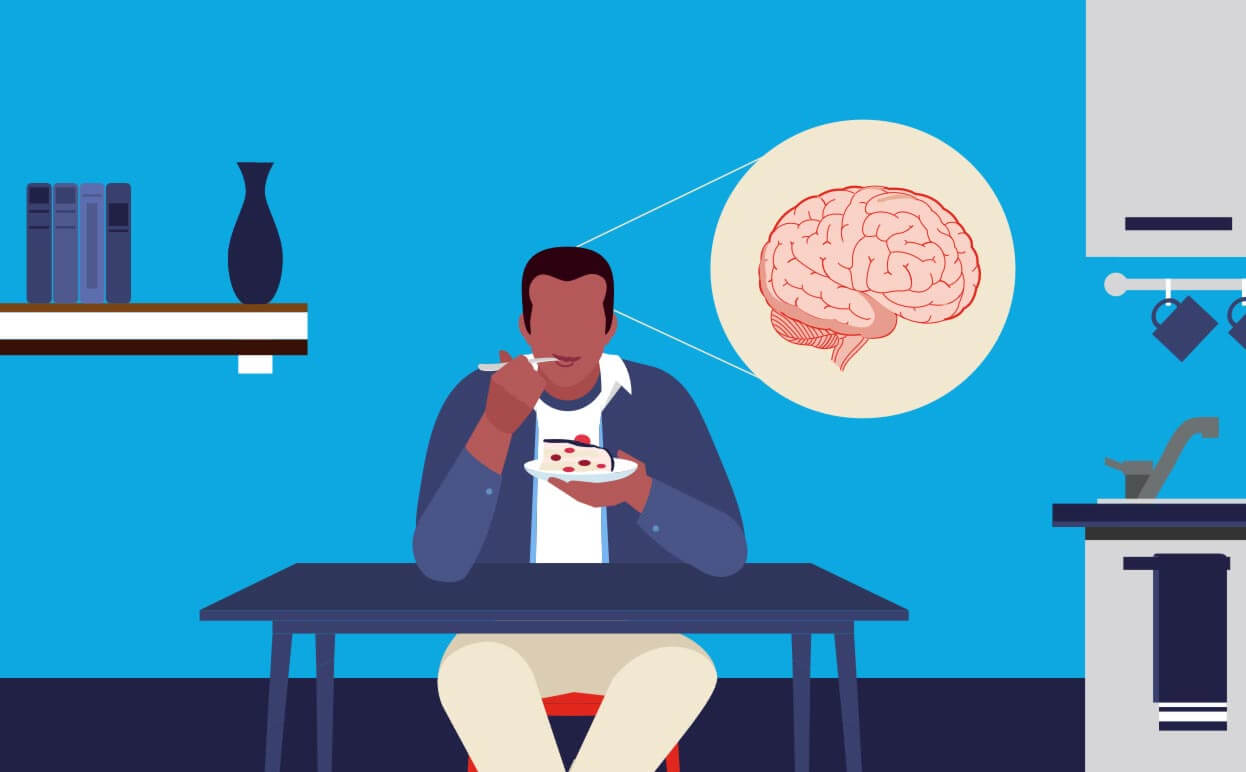
Why Severe Low Blood Sugar Matters
Why Severe Low Blood Sugar Matters and What You Can Do
02:21
How Severe Low Blood Sugar Can Affect Your Body
03:56
00:07 – 00:08 Hello.
00:06 – 00:06 Hello.
00:06 – 00:09 Thanks for joining me for Severe Low Blood Sugar Basics.
00:10 – 00:14 I think many of you would agree, things that may not be first on our to-do list
00:14 – 00:16 can have a big impact later down the line.
00:18 – 00:20 Severe low blood sugar may not be top of mind
00:20 – 00:24 for people with diabetes, but it can have serious health effects.
00:25 – 00:28 If untreated, severe low blood sugar can be life-threatening.
00:30 – 00:32 It can lead to difficulty thinking or speaking,
00:33 – 00:35 changes in behavior,
00:35 – 00:38 difficulty at work or in social situations,
00:39 – 00:40 accident and injury,
00:40 – 00:42 damage to the brain or heart,
00:43 – 00:44 seizure,
00:44 – 00:46 passing out,
00:46 – 00:47 or loss of life.
00:51 – 00:54 Even though severe low blood sugar can lead to serious problems,
00:55 – 00:57 it is often manageable and preventable.
00:59 – 01:02 Actions you can take to help prevent severe low blood sugar include
01:02 – 01:05 watching out for early signs and symptoms of low blood sugar
01:05 – 01:07 when your daily routine changes,
01:08 – 01:10 and keeping fast-acting oral carbohydrates,
01:10 – 01:12 such as hard candy or fruit juice,
01:12 – 01:14 with you so you can treat low blood sugar
01:14 – 01:17 before it becomes severe.
01:19 – 01:21 Fast-acting oral carbohydrates
01:21 – 01:23 tend to be the first treatment for low blood sugar,
01:24 – 01:26 but during a severe low blood sugar event,
01:26 – 01:30 giving fast-acting carbohydrates by mouth can be dangerous,
01:30 – 01:31 because the person may choke.
01:32 – 01:34 That’s why it’s important for people with diabetes
01:34 – 01:37 to also be prepared with a rescue glucagon treatment.
01:39 – 01:40 Glucagon is a substance in your body
01:40 – 01:43 that tells your liver to release sugar into your bloodstream.
01:44 – 01:47 People who have diabetes don’t always have enough glucagon,
01:47 – 01:51 so when their blood sugar goes too low, prescription glucagon can be used
01:51 – 01:53 to bring blood sugar back up to a normal level.
01:55 – 01:57 Any time a person with diabetes is unable
01:57 – 02:02 to help themselves due to a low blood sugar event, glucagon should be used.
02:02 – 02:06 Severe low blood sugar can happen even with the best prevention strategy,
02:06 – 02:09 so it’s important to have an emergency plan in place.
02:10 – 02:13 Thank you for joining us for Severe Low Blood Sugar Basics.
00:00 – 00:26 Speaker 1: When I think about severe low blood sugar, I sort of–I think about two problems. There’s the immediate problem that you could encounter if you get severe low blood sugar. And then there’s sort of the more global effect that multiple episodes like this could have on your body over a lifetime. So, you know, in the short term, having a severe episode of hypoglycemia could, you know, at its worst cause you to pass out.
00:27 – 00:44 Speaker 1: It could cause you to have a seizure. It could cause you to feel extremely weak and dizzy. And I try and imagine worst case scenarios, like what would happen if you were driving a car while that happened? What would happen if you were out alone with your children or your grandchildren while that happened? There would be immediate danger there.
00:45 – 00:54 Speaker 1: But then there’s also, you know, that more global effect that it has on your body over a lifetime–the effect it has on your heart. Stress that it puts on your heart, on your brain and on your blood vessels.
00:55 – 01:44 Speaker 2: Symptoms usually start around as the glucose falls below 70 milligrams per deciliter around the four millimoles per liter mark. And as the glucose falls further and the body perceives increasing stress, then those symptoms may become stronger. And people say, well, I may have plenty of time but I think what’s really important to note is that if your glucose falls from from a 70 down to a 55, at around the 55 milligrams per deciliter mark, which is three millimoles per liter, that’s the level at which your brain can no longer extract enough glucose to work properly.
01:44 – 02:11 Speaker 2: So your brain function begins to diminish. Now that can produce symptoms such as loss of concentration, confusion or even I see very common symptoms not feeling quite right. I don’t feel quite right. Why is that? And that means that they have these symptoms due to a deficiency of glucose in the brain, which is an essential fuel it needs to work.
02:11 – 02:26 Speaker 2: And the importance of that is that if you have those symptoms, your ability to respond may already be impaired. And so it’s really important as soon as somebody has any kind of symptom at all, then they take action.
02:26 – 02:48 Speaker 1: Typically severe low blood sugar would look like impaired consciousness. So somebody might all of a sudden get incredibly sleepy, have difficulty speaking, have difficulty sort of thinking through a process. They might faint and pass out. They might be incredibly sweaty or shaky or at worst, they could have a seizure.
02:49 – 03:10 Speaker 3: This is very, very common. You know, I didn’t give statistics, but it’s about one out of twenty people with with Type 1 Diabetes will go to the emergency room every year with a low blood sugar episode. And, you know, 5% of people, it’s really, really common. So as time goes on, it’s just the risk of having this occurs is really, really high.
03:11 – 03:31 Speaker 3: So being prepared, even if it hasn’t happened to you, it can happen to you and not to scare people! You know, again, that’s the tightrope. We want them to have good control and not be scared of having tight control, but just being prepared like, hey, we’re going to get your blood sugars into a safe place, to keep you healthy and avoid long term complications.
03:31 – 03:48 Speaker 3: Because I think a lot of the weight in discussions we have with patients around these long term complications avoiding hyperglycemia. But of course, we got the hypoglycemia stuff over here and walking that tight line, being prepared to deal with both of them is just critical to diabetes.
03:49 – 04:23 Speaker 4: Many patients have had near-miss events leading up to severe low blood sugar. We try to let them know that severe low blood sugar can lead to significant damage, from the impact on the patient’s personal health to the impact on others, such as car accidents, and that although it is difficult to completely avoid accidental severe low blood sugar, we can reduce it by working to avoid risks in their daily life.
00:07 – 00:08 Hello.
00:06 – 00:06 Hello.
00:06 – 00:09 Thanks for joining me for Severe Low Blood Sugar Basics.
00:10 – 00:14 I think many of you would agree, things that may not be first on our to-do list
00:14 – 00:16 can have a big impact later down the line.
00:18 – 00:20 Severe low blood sugar may not be top of mind
00:20 – 00:24 for people with diabetes, but it can have serious health effects.
00:25 – 00:28 If untreated, severe low blood sugar can be life-threatening.
00:30 – 00:32 It can lead to difficulty thinking or speaking,
00:33 – 00:35 changes in behavior,
00:35 – 00:38 difficulty at work or in social situations,
00:39 – 00:40 accident and injury,
00:40 – 00:42 damage to the brain or heart,
00:43 – 00:44 seizure,
00:44 – 00:46 passing out,
00:46 – 00:47 or loss of life.
00:51 – 00:54 Even though severe low blood sugar can lead to serious problems,
00:55 – 00:57 it is often manageable and preventable.
00:59 – 01:02 Actions you can take to help prevent severe low blood sugar include
01:02 – 01:05 watching out for early signs and symptoms of low blood sugar
01:05 – 01:07 when your daily routine changes,
01:08 – 01:10 and keeping fast-acting oral carbohydrates,
01:10 – 01:12 such as hard candy or fruit juice,
01:12 – 01:14 with you so you can treat low blood sugar
01:14 – 01:17 before it becomes severe.
01:19 – 01:21 Fast-acting oral carbohydrates
01:21 – 01:23 tend to be the first treatment for low blood sugar,
01:24 – 01:26 but during a severe low blood sugar event,
01:26 – 01:30 giving fast-acting carbohydrates by mouth can be dangerous,
01:30 – 01:31 because the person may choke.
01:32 – 01:34 That’s why it’s important for people with diabetes
01:34 – 01:37 to also be prepared with a rescue glucagon treatment.
01:39 – 01:40 Glucagon is a substance in your body
01:40 – 01:43 that tells your liver to release sugar into your bloodstream.
01:44 – 01:47 People who have diabetes don’t always have enough glucagon,
01:47 – 01:51 so when their blood sugar goes too low, prescription glucagon can be used
01:51 – 01:53 to bring blood sugar back up to a normal level.
01:55 – 01:57 Any time a person with diabetes is unable
01:57 – 02:02 to help themselves due to a low blood sugar event, glucagon should be used.
02:02 – 02:06 Severe low blood sugar can happen even with the best prevention strategy,
02:06 – 02:09 so it’s important to have an emergency plan in place.
02:10 – 02:13 Thank you for joining us for Severe Low Blood Sugar Basics.
00:00 – 00:26 Speaker 1: When I think about severe low blood sugar, I sort of–I think about two problems. There’s the immediate problem that you could encounter if you get severe low blood sugar. And then there’s sort of the more global effect that multiple episodes like this could have on your body over a lifetime. So, you know, in the short term, having a severe episode of hypoglycemia could, you know, at its worst cause you to pass out.
00:27 – 00:44 Speaker 1: It could cause you to have a seizure. It could cause you to feel extremely weak and dizzy. And I try and imagine worst case scenarios, like what would happen if you were driving a car while that happened? What would happen if you were out alone with your children or your grandchildren while that happened? There would be immediate danger there.
00:45 – 00:54 Speaker 1: But then there’s also, you know, that more global effect that it has on your body over a lifetime–the effect it has on your heart. Stress that it puts on your heart, on your brain and on your blood vessels.
00:55 – 01:44 Speaker 2: Symptoms usually start around as the glucose falls below 70 milligrams per deciliter around the four millimoles per liter mark. And as the glucose falls further and the body perceives increasing stress, then those symptoms may become stronger. And people say, well, I may have plenty of time but I think what’s really important to note is that if your glucose falls from from a 70 down to a 55, at around the 55 milligrams per deciliter mark, which is three millimoles per liter, that’s the level at which your brain can no longer extract enough glucose to work properly.
01:44 – 02:11 Speaker 2: So your brain function begins to diminish. Now that can produce symptoms such as loss of concentration, confusion or even I see very common symptoms not feeling quite right. I don’t feel quite right. Why is that? And that means that they have these symptoms due to a deficiency of glucose in the brain, which is an essential fuel it needs to work.
02:11 – 02:26 Speaker 2: And the importance of that is that if you have those symptoms, your ability to respond may already be impaired. And so it’s really important as soon as somebody has any kind of symptom at all, then they take action.
02:26 – 02:48 Speaker 1: Typically severe low blood sugar would look like impaired consciousness. So somebody might all of a sudden get incredibly sleepy, have difficulty speaking, have difficulty sort of thinking through a process. They might faint and pass out. They might be incredibly sweaty or shaky or at worst, they could have a seizure.
02:49 – 03:10 Speaker 3: This is very, very common. You know, I didn’t give statistics, but it’s about one out of twenty people with with Type 1 Diabetes will go to the emergency room every year with a low blood sugar episode. And, you know, 5% of people, it’s really, really common. So as time goes on, it’s just the risk of having this occurs is really, really high.
03:11 – 03:31 Speaker 3: So being prepared, even if it hasn’t happened to you, it can happen to you and not to scare people! You know, again, that’s the tightrope. We want them to have good control and not be scared of having tight control, but just being prepared like, hey, we’re going to get your blood sugars into a safe place, to keep you healthy and avoid long term complications.
03:31 – 03:48 Speaker 3: Because I think a lot of the weight in discussions we have with patients around these long term complications avoiding hyperglycemia. But of course, we got the hypoglycemia stuff over here and walking that tight line, being prepared to deal with both of them is just critical to diabetes.
03:49 – 04:23 Speaker 4: Many patients have had near-miss events leading up to severe low blood sugar. We try to let them know that severe low blood sugar can lead to significant damage, from the impact on the patient’s personal health to the impact on others, such as car accidents, and that although it is difficult to completely avoid accidental severe low blood sugar, we can reduce it by working to avoid risks in their daily life.
Why Severe Low Blood Sugar Matters
Sugar is the main source of energy for your body and brain, so it makes sense that severe low blood sugar can be bad for your health, both in the short term and long term.

The Possible Effects of Severe Low Blood Sugar
Severe low blood sugar can affect your life in different ways. Some of these concerns are milder, and others can be more serious, such as physical injury and, in extreme cases, loss of life. However, if treated promptly, people will have a full recovery without long-term effects.
Severe low blood sugar can differ in severity and vary from person to person.

Being Your Own Advocate
It’s never too late to take steps to help reduce your risk of severe low blood sugar. If you tell your healthcare provider about your low and severe low blood sugar events soon after they happen, they can help you reduce the likelihood of severe low blood sugar events in the future.
Review Your Knowledge
Learn More About Severe Low Blood Sugar
References
- 1Edelman SV. Diabetes Educ. 2014;40(3):269-279.
- 2Frier BM. Nat Rev Endocrinol. 2014;10(12):711-722.
- 3Kedia N. Diabetes Metab Syndr Obes. 2011;4:337-346.
















